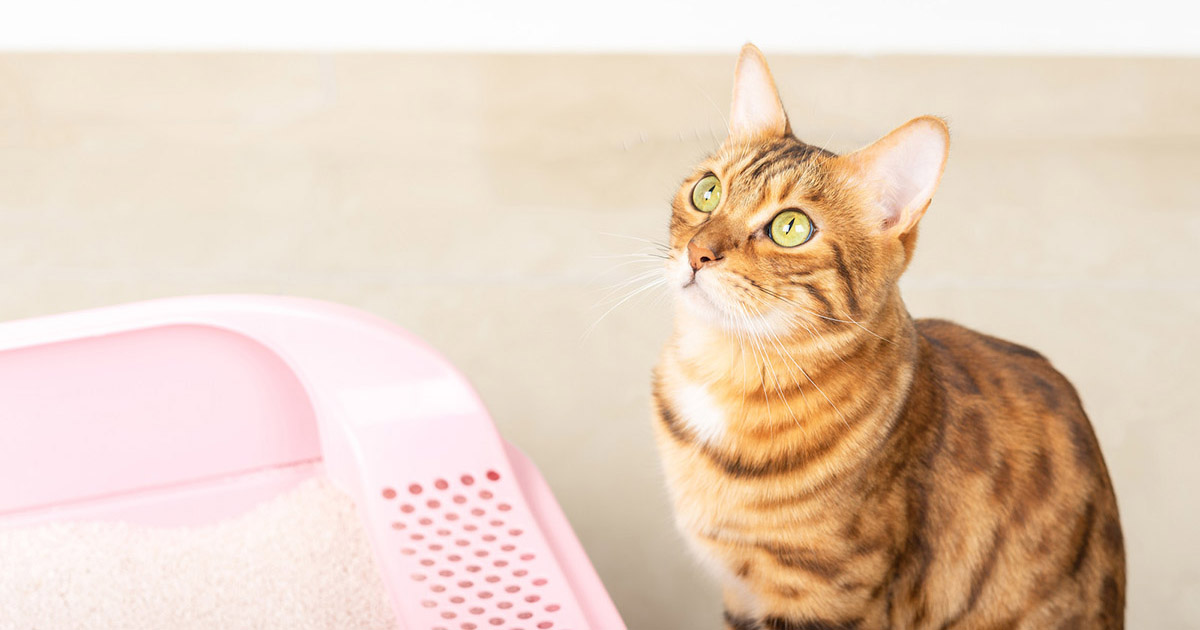Why Flushing Cat Poop Down Your Toilet Is Bad - Tips for Correct Handling
Why Flushing Cat Poop Down Your Toilet Is Bad - Tips for Correct Handling
Blog Article
They are making a few good points on the subject of Don’t flush cat feces down the toilet in general in this article further down.

Intro
As cat owners, it's important to bear in mind just how we take care of our feline buddies' waste. While it might seem practical to purge pet cat poop down the commode, this practice can have harmful consequences for both the environment and human wellness.
Alternatives to Flushing
Luckily, there are much safer and extra accountable methods to take care of feline poop. Think about the complying with alternatives:
1. Scoop and Dispose in Trash
The most common method of getting rid of feline poop is to scoop it into a biodegradable bag and throw it in the garbage. Be sure to make use of a specialized litter scoop and deal with the waste quickly.
2. Use Biodegradable Litter
Opt for naturally degradable feline trash made from materials such as corn or wheat. These trashes are eco-friendly and can be securely disposed of in the garbage.
3. Hide in the Yard
If you have a yard, consider hiding pet cat waste in an assigned area far from vegetable gardens and water resources. Make sure to dig deep enough to stop contamination of groundwater.
4. Set Up a Pet Waste Disposal System
Invest in a pet dog waste disposal system especially created for cat waste. These systems make use of enzymes to break down the waste, decreasing smell and environmental effect.
Health Risks
In addition to ecological concerns, flushing pet cat waste can also position wellness risks to human beings. Cat feces might include Toxoplasma gondii, a bloodsucker that can trigger toxoplasmosis-- a possibly severe ailment, particularly for pregnant females and people with weakened immune systems.
Ecological Impact
Flushing feline poop presents harmful virus and bloodsuckers right into the water system, posturing a considerable risk to aquatic communities. These pollutants can adversely influence aquatic life and compromise water quality.
Verdict
Responsible pet possession extends beyond giving food and shelter-- it likewise involves appropriate waste management. By refraining from purging feline poop down the commode and opting for different disposal techniques, we can reduce our ecological footprint and shield human wellness.
Why You Should Never Flush Cat Poop Down the Toilet
A rose by any other name might smell as sweet, but not all poop is created equal. Toilets, and our sewage systems, are designed for human excrement, not animal waste. It might seem like it couldn’t hurt to toss cat feces into the loo, but it’s not a good idea to flush cat poop in the toilet.
First and foremost, assuming your cat uses a litter box, any waste is going to have litter on it. And even the smallest amount of litter can wreak havoc on plumbing.
Over time, small amounts build up, filling up your septic system. Most litter sold today is clumping; it is made from a type of clay that hardens when it gets wet. Ever tried to scrape old clumps from the bottom of a litter box? You know just how cement-hard it can get!
Now imagine just a small clump of that stuck in your pipes. A simple de-clogger like Drano isn’t going to cut it. And that means it’s going to cost you big time to fix it.
Parasitic Contamination
Believe it or not, your healthy kitty may be harboring a nasty parasite. Only cats excrete Toxoplasma in their feces. Yet it rarely causes serious health issues in the cats that are infected. Most people will be fine too if infected. Only pregnant women and people with compromised immune systems are at risk. (If you’ve ever heard how women who are expecting are excused from litter cleaning duty, Toxoplasma is why.)
But other animals may have a problem if infected with the parasite. And human water treatment systems aren’t designed to handle it. As a result, the systems don’t remove the parasite before discharging wastewater into local waterways. Fish, shellfish, and other marine life — otters in particular — are susceptible to toxoplasma. If exposed, most will end up with brain damage and many will die.
Depending on the species of fish, they may end up on someone’s fish hook and, ultimately on someone’s dinner plate. If that someone has a chronic illness, they’re at risk.
Skip the Toilet Training
We know there are folks out there who like to toilet train their cats. And we give them props, it takes a lot of work. But thanks to the toxoplasma, it’s not a good idea.

As a fervent reader on Don’t flush cat feces down the toilet, I assumed sharing that piece of content was worth the trouble. Are you aware of somebody else who is fascinated about the subject? Why not share it. I truly appreciate reading our article about How to Dispose of Cat Poop and Litter Without Plastic Bags.
Schedule Services Report this page